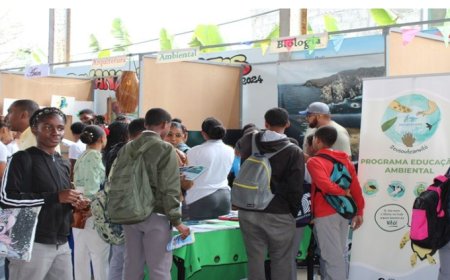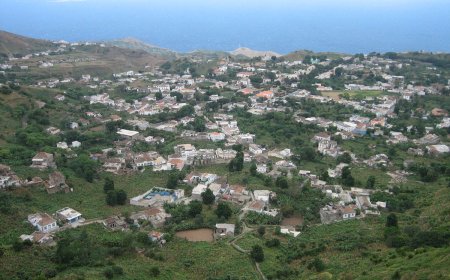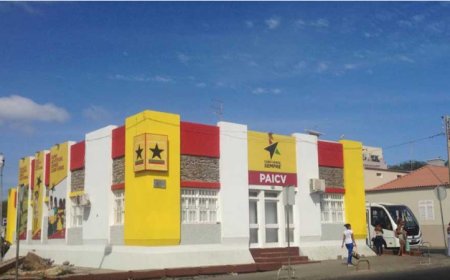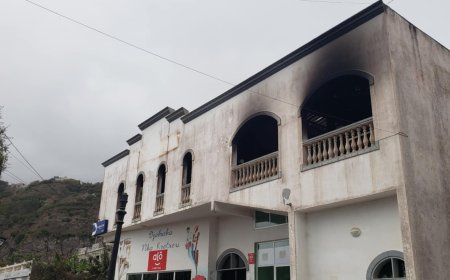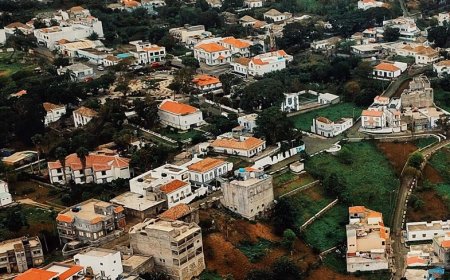Accident: Jeju B738 at Muan on Dec 29, 2024, landing with landing gear retracted and overshooting the runway
By Simon Hradecky, created on Sunday, December 29, 2024 at 05:43Z, last updated on Tuesday, December 31, 2024 at 12:14Z
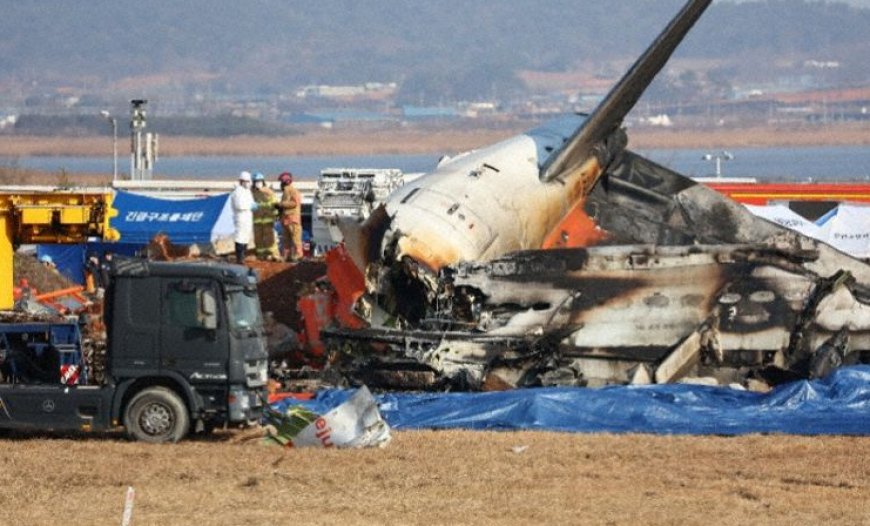
A Jeju Boeing 737-800, registration HL8088, operating flight 7C-2216 from Bangkok, Thailand to Muan, South Korea, carrying 175 passengers and 6 crew, landed on Muan's runway 19 at approximately 09:03L (00:03Z) with all landing gear retracted, overran the end of the runway, skidding on its fuselage and engines, struck a concrete barrier about 300 metres (1,000 ft) past the end of the runway, and exploded in a fireball. Two people were rescued alive, 120 bodies were recovered, and there is no hope of finding any more survivors.
Muan firefighters reported that landing gear failure, likely caused by a bird strike, led to a go-around attempt. The aircraft then attempted another landing in adverse weather conditions. However, the exact cause needs to be determined by a subsequent joint investigation.
Authorities reported that two survivors, a man and a woman, both cabin crew members, were rescued alive with moderate to serious injuries from the tail section of the aircraft.
South Korea's Ministry of Transportation reported that there were multiple issues, including a bird strike and landing gear failure, and that it will thoroughly investigate the causes. The ministry also added that a bird alert had been issued at 08:57L, about 6 minutes before the crash. Approximately one minute after the alert, the crew declared Mayday at 08:58L while approaching runway 01. The control tower cleared the aircraft to land on the opposite runway (19), and the aircraft crashed 5 minutes after declaring Mayday. The flight data recorder was recovered, but the cockpit voice recorder has not yet been found.
An observer on the ground reported that the aircraft passed over a flock of birds, and two or three impact sounds were heard, as if the birds had been ingested by the engines. Flames were seen from the right engine. The aircraft climbed slightly, but seemed unable to continue climbing and landed in the opposite direction. When the aircraft passed over the observer, the landing gear was down.
The hospital reported that one of the flight attendants suffered a broken shoulder and head injuries, but was conscious and able to walk.
On December 30, 2024, the South Korean Ministry of Transportation reported that the flight data recorder had been recovered, but it was damaged. It is currently unknown whether the data is intact. The recorder has been taken to Seoul, where analysis will begin once the NTSB and Boeing teams arrive. The ministry also released the following timeline of events:
- 8:54L : Muan Airport air traffic control clears the aircraft to land on runway 01.
- 8:57L : Air traffic control issues a "caution - bird activity" warning.
- 8:59L : The pilot of Flight 7C-2216 reports a bird strike, declares a "Mayday Mayday Mayday" emergency and "Bird strike, bird strike, go-around."
- 9:00L : Flight 7C-2216 initiates a go-around and requests clearance to land on runway 19, which is approached from the opposite end of the airport's only runway.
- 9:01L : Air traffic control clears the aircraft to land on runway 19.
- 9:02L : Flight 7C-2216 touches down about 1,200m (3,940ft) past the 2,800m (9,184ft) runway.
- 9:02:34L : Air traffic control alerts the airport fire rescue unit to the "collision signal."
- 9:02:55L : The airport fire rescue unit completes deployment of rescue equipment.
- 9:03L : Flight 7C-2216 collides with the guardrail after overshooting the runway.
- 9:10L : The Ministry of Transport receives the accident report from the airport authorities.
- 9:23L : A man is rescued and transported to a temporary medical facility.
- 9:38L : Muan Airport is closed.
- 9:50L : The rescue of the second person, from the tail section of the aircraft, is completed.
Authorities are investigating what role the tracker antenna, located beyond the end of the runway, including its concrete barrier, played in the crash.
On December 30, 2024, the President of South Korea ordered an emergency inspection of all aviation operations in the country.
As of December 31, 2024, the Ministry of Transport reported that data has been extracted from the CVR, but a key connector is missing from the flight data recorder and authorities are analyzing how to extract the data.
ADS-B data received from the aircraft ceased at 900 feet at 08:58L (23:58Z on 28 December) during approach to runway 01. Previous flight was receiving until the transponder was turned off in the parking area. Videos show the aircraft was skidding on runway 19 before striking the guardrail.
South Korea's EAIP states about the concentration of birds near the airport:
The coastline and wetlands near Muan International Airport provide good nesting habitat for resident birds such as Black-billed Chough, Ring-necked Pheasant, Rufous Turtle Dove, Tree Sparrow, Black-footed Gull, and migratory birds such as Mallard, Grey Heron, Little Egret and House Swallow.
Mallards inhabit the area around the airport during the winter season, typically from October to March. They are active in the morning and evening, flying at high altitudes. Grey Herons and Little Egrets inhabit the area during the summer, typically from August to September, and are active during the day. Most resident birds are active during the day and fly at low altitudes.
Muan International Airport makes efforts to prevent bird strikes by implementing both non-lethal techniques, such as gas cannons and playback of distress calls, and lethal techniques, such as firing live ammunition, during airport operating hours.
Metars : RKJB 290200Z 27006KT 230V310 9999 FEW045 07/M04 Q1028 NOSIG= RKJB 290100Z 21002KT 9999 FEW045 06/M02 Q1028 NOSIG= RKJB 290000Z 11002KT 9000 FEW045 02/M00 Q1028 NOSIG= RKJB 282300Z Q1027 NOSIG= RKJB 282100Z 29004KT 260V330 9999 BKN045 04/M02 Q1026 NOSIG= RKJB 282000Z 32004KT 9999 BKN045 04/M02 Q1026 NOSIG= RKJB 281900Z 31008KT 270V340 9999 BKN040 04/M02 Q1026 NOSIG=
Source: Aviation Herald














